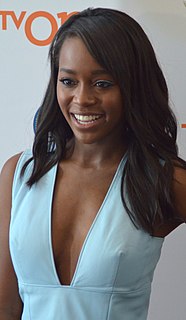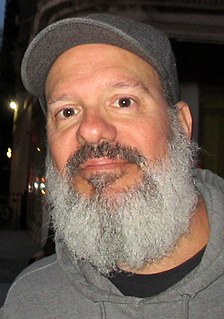A Quote by Jamaica Kincaid
People only say I'm angry because I'm black and I'm a woman. But all sorts of people write with strong feeling, the way I do.
Related Quotes
I was raised in a completely black world. In those days, if a white woman married a black man, she lived as a black woman, and that was just the end of it. So, I don't have a feeling of being bi-racial. I don't have a connection to it. People often come up to me thinking I do have a connection to it, and I kind of let them down because I really don't.
I write because I have an innate need to. I write because I can't do normal work. I write because I want to read books like the ones I write. I write because I am angry at everyone. I write because I love sitting in a room all day writing. I write because I can partake of real life only by changing it.
Anyway, these books I love, they’re all books by men—every last one of them. Because if it’s unseemly and possibly dangerous for a man to be angry, it’s totally unacceptable for a woman to be angry. I wanted to write a voice that for me, as a reader, had been missing from the chorus: the voice of an angry woman.
If there are a couple of adjectives people use to describe me, anger is usually in there. I've never taken that as criticism. It's the way I naturally communicate. But I'm not faux-angry, like Lewis Black, or angry like a gun-toting crazy person. I'm just angry in a mild way - it's not like I'm going to do anything about it.
A strong woman is a woman who craves love like oxygen or she turns blue choking. A strong woman is a woman who loves strongly and weeps strongly and is strongly terrified and has strong needs. A strong woman is strong in words, in action, in connection, in feeling; she is not strong as a stone but as a wolf suckling her young. Strength is not in her, but she enacts it as the wind fills a sail.
I write because I am alone and move through the world alone. No one will know what has passed through me... I write because there are stories that people have forgotten to tell, because I am a woman trying to stand up in my life... I write out of hurt and how to make hurt okay; how to make myself strong and come home, and it may be the only real home I'll ever have.
We [Black people] have always used our creativity to battle and we're not the only ones. Black Americans are certainly leaders in that simply because we were denied education and dealt with enforced illiteracy. But people seem to always forget that literacy is not the only way of learning things or conveying knowledge.





































